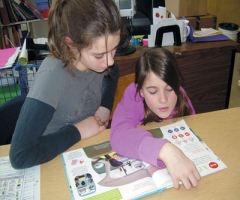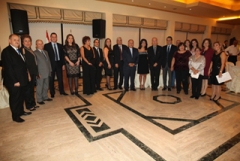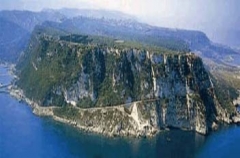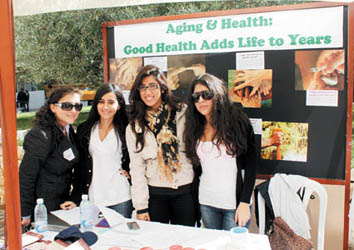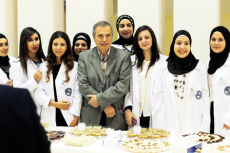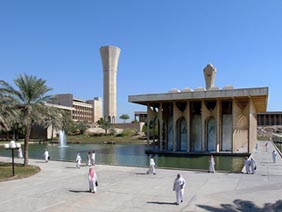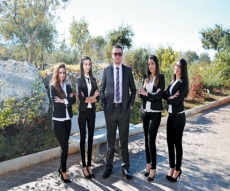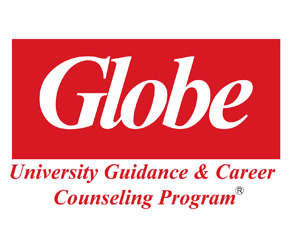Displaying items by tag: USJ
L’Orthopédagogie à L’USJ
Au Liban, l’orthopédagogue est un enseignant spécialisé dans l’intervention pédagogique auprès des personnes ayant une déficience, un trouble ou une difficulté d’apprentissage ou d’adaptation.
Ces définitions nous amènent à nous poser beaucoup de questions : Elèves handicapés? Peuvent-ils apprendre ? Où ? A l’école ?
L’échec scolaire peut-il être évité ? N’est-il pas tributaire des capacités de l’élève et de son intelligence ?
En effet, étudier l’orthopédagogie et devenir orthopédagogue c’est pouvoir réfléchir à toutes ces questions et y trouver des réponses.
C’est aussi, adopter une nouvelle façon de percevoir et de comprendre l’apprentissage, l’enseignement et l’école.
C’est se rendre compte que chacun peut apprendre quelles que soient ses difficultés et ses limites.
C’est relever le défi à chaque moment pour trouver les techniques, les outils et les méthodes les plus appropriées pour permettre à un enfant en difficulté d’apprendre.
C’est aussi communiquer et coopérer avec les spécialistes, les enseignants, les parents et l’apprenant.
C’est apprendre à percevoir et célébrer les menus progrès, les réalisations minimes et donc de contribuer concrètement chaque jour à la réussite de l’apprenant handicapé ou en difficulté.
C’est surtout faire un travail sur soi, changer sa propre perception du monde … et changer le monde !
Pour devenir orthopédagogue il faut s’intéresser à la cause des enfants handicapés ou en difficulté, il faut s’engager à faire valoir leur droit à l’éducation.
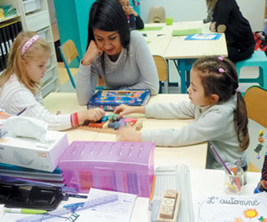
Pour devenir orthopédagogue il faut se former. La formation à cette profession est proposée à l’Institut libanais d’éducateurs (ILE) de l’université Saint-Joseph. Cette formation est accessible aux étudiants ayant obtenu leur baccalauréat libanais ou son équivalent. Elle s’étale sur trois années universitaires soit 6 semestres.
L’étudiant ayant validé 180 crédits obtiendra « la licence en sciences de l’éducation option orthopédagogie ». La poursuite des études de deuxième cycle est également possible et donc l’ILE assure un cursus de Master professionnel ou de recherche en orthopédagogie.
Le cursus de formation renferme un aspect théorique et un autre pratique. En parallèle aux cours variés d’orthopédagogie, de pédagogie, de psychologie, d’art et d’outillages académiques, l’étudiant effectue des stages sur le terrain. Ces derniers lui permettent de connaître de plus près les enfants handicapés ou en difficulté et d’expérimenter le travail d’orthopédagogue.
Intéressés par cette formation ?
Connectez-vous au :
www.ile.usj.edu.lb pour les détails.
العشاء الاول للهيئة التأسيسية لقدامى خريجي اليسوعية شمالا
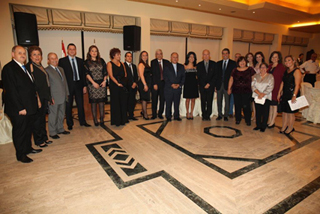
نظمت الهيئة التأسيسية لـ "رابطة قدامى خريجي الجامعة اليسوعية في الشمال" عشاءها الاحتفالي الأول، حيث تحلق لفيف من الخريجين حول أعضاء الهيئة التأسيسية: سمر الخشمان، نبيل نصور، ديما مرعب، دانيا نابلسي، رانيا غانم، رودي عريجي وزياد طليس، وأعلن خلاله رئيس الجامعة البروفسور الأب سليم دكاش تأسيس رابطة خريجي الجامعة في الشمال.
Higher Education In Lebanon
Lebanon's higher education is the oldest in the region and dates back to 1866 when the American University of Beirut (AUB) was founded under the name of the Syrian Evangelical College, followed by the Universityof Saint Joseph (USJ) in 1875,then by the Lebanese American University (LAU) in 1947as a Beirut College for Women.
The Lebanese University (LU) which is the only public university in the country was founded in 1951.
Haigazian University was founded in 1955,followed by the Beirut Arab University (BAU) in 1960 in collaboration with the Egyptianuniversity of Alexandria.
Most of the 40 higher education institutions currently in operation in Lebanon were legalised in the late nineties
when the private sector flourished in a suddenand rapid expansion following the 15 year civil war that Lebanon suffered between 1975 and1990 and which had a very damaging impact on the country’s higher education sector.The freedom and independence of Lebanese higher education are protected under the Constitution. Tertiary education in Lebanon is divided into two categories; vocational tertiary education and general or non-vocational higher education.
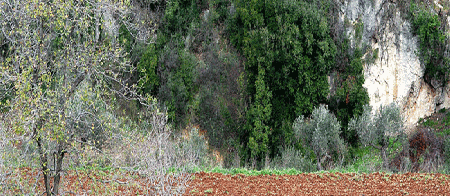
Higher education in Lebanon composes of Technical and Vocational Institutes, University Colleges, University Institutes and Universities. The Lebanese University is the only public institution. The Ministry of Education and Higher Education administrates the private and public sectors and Technical and Vocational Institutes are under the Directorate General of Technical and Vocational Education Directorate General of Higher Education has responsibility for University Colleges, University Institutes and Universities).
According to the World Bank database, gross enrollment rate of tertiary education is 46.9 percent for male, 56.3 percent for female, and 51.6 percent for total. (The World Bank 2009) Private enrollment share of tertiary education is 53.4 percent.
Female students are seen in every university program or field of specialization..
Following high school, Lebanese students may choose to study at a university, a college, or a vocational training institute. The number of years to complete each program varies.
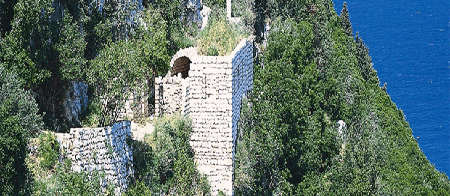
While the Lebanese educational system offers a very high quality and international class of education, the local employment market lacks enough opportunities, thus encouraging many of the young educated to travel abroad; Successful Lebanese engineers, doctors, businessmen, etc. are found practically all over the world. Lebanon has 42 nationally-accredited universities, several of which are internationally recognized. The American University of Beirut (AUB) and the Université Saint-Joseph (USJ) were the first Anglophone and the first Francophone universities to open in Lebanon respectively. The forty-one universities, both public and private, largely operate in French, or English as these are the most widely used foreign languages in Lebanon.
At the English universities, students who have graduated from an American-style high school program enter at the freshman level to earn their baccalaureate equivalence from the Lebanese Ministry of Higher Education. This qualifies them to continue studying at the higher levels. Such students are required to have already taken the SAT I and the SAT II (Subjects Test) upon applying to college, in lieu of the official exams. On the other hand, students who have graduated from a school that follows the Lebanese educational system are directly admitted to the sophomore year. These students are still required to take the SAT I, but not the SAT II.
List of Universities is available in another section. You may go to Universities






